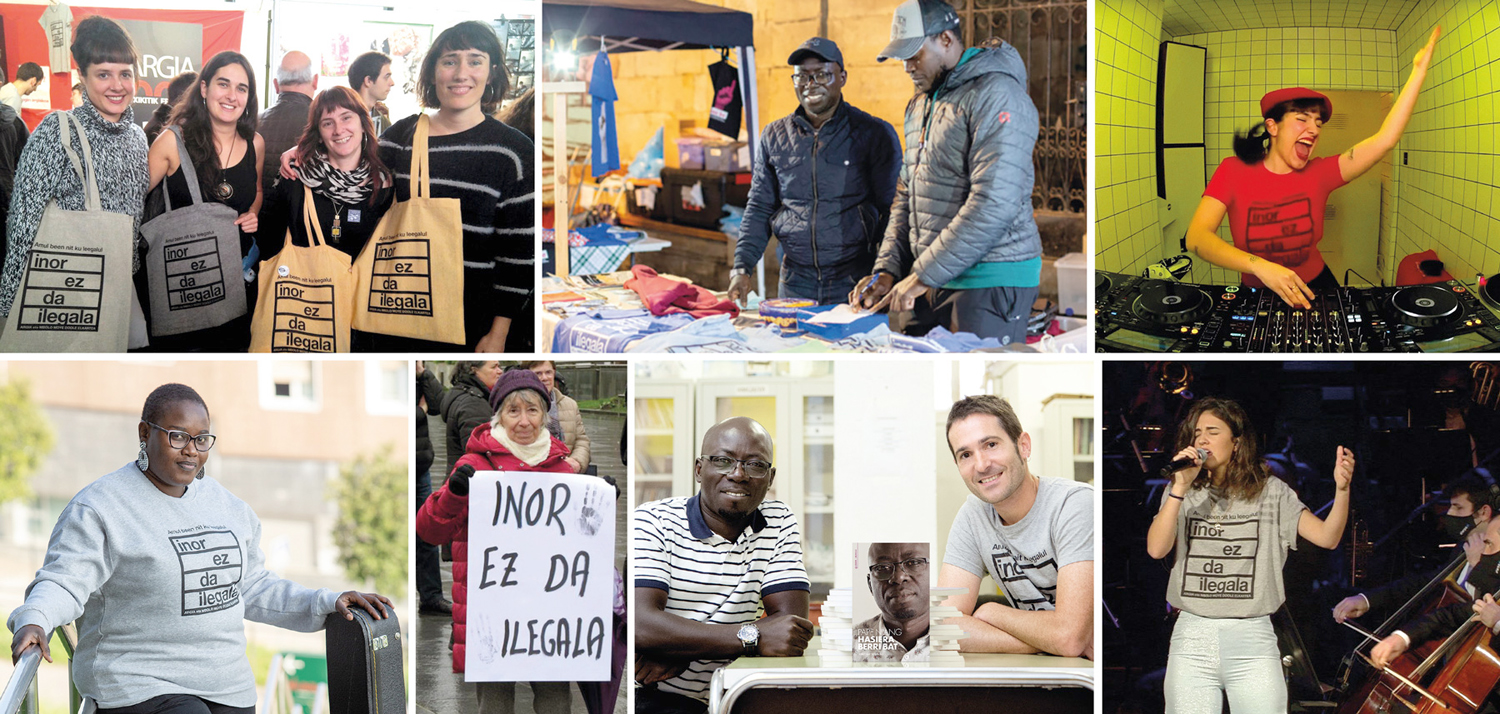French police stop Black and Arab youth 20 times more
- According to the French Human Rights Ombudsman, 80% of people on this profile have been detained in police checks. This practice "may aggravate conflicts between different communities and the police" has long been warned by experts.

A few years ago, the French Human Rights Ombudsman published the "Police and Citizen Relations Survey". He stressed that the police practice of personality controls is mainly directed at "young men of visible minorities". In other words, the French section of the international body gives the statistical basis to the idea that personality checks are carried out according to appearance: In a representative sample of over 5,000 people, 80% of the people with a profile of "young person perceived as black or Arabic" stated that in the last five years they had been detained in police controls, compared to 16% of the rest of the respondents. These people, descendants and Arabs, have come to the conclusion that they have "20 times more chances of being identified."
In the last five years, 80% of the people with a profile "young person perceived as black or Arabic" declared that they had been paralyzed in police controls, compared with 16% of the rest of the respondents.
Ethnic profiling is called an ethnic identification profile or English practice for the investigation of crimes or the application of law, based on ethnic, racial, national or religious generalizations, rather than on objective evidence or individual conduct. International bodies define it as a practice contrary to fundamental human rights. In this regard, the United Nations has urged the French State to "address serious problems of racism and exclusion in law enforcement". However, the international regime has no sanctions regime for countries that violate presumed laws, especially if they belong to the Western imperialist bloc.
Spain
The case of the French State is well known, but not the only one. Independent similar investigations have been conducted in the Spanish State with quite significant results. In 2013, the study Police identification by ethnic profile in Spain was published, with a survey of this type. From the data of the total sample, the Roma identify ten times more than the Caucasian Europeans, the Maghreb 7.5 more and the Afro-Latin Americans 6.5 times more.
Roma identify ten times more than Caucasian Europeans, Maghreb 7.5 more and Afro-Latin Americans 6.5 times more
Thus, the variation in the experiences of people identified by the police on the street is quite predictable: they paralyze men more than women, the youngest more likely than adults, while retirees and women who work at home have less chance of being identified than employees, the unemployed and, above all, students.
More generally, because of their appearance, Caucasian Europeans are half likely to suffer from police control. In 2011 and 2012 they had an average probability of 7% against 14% of the rest of ethnic groups. Combining both origin and appearance factors, the following conclusion was reached with the 2013 data: If you were born in Spain and have a European Caucasian aspect, you have almost three times less (16%) opportunities for police to paralyse you on the street than if you have a European non-Caucasian aspect and were born outside Spain (45%).
Caucasian Europeans are half likely to undergo police control
Police legitimacy in question
Other elements raised by the Spanish State’s investigation are trust, legitimacy and willingness to cooperate with the police. "Police paralysis damages their actions and weakens their legitimacy," the experts concluded. In fact, stoppages considered "satisfactory" do not influence the degree of legitimacy that the population grants to this organization. In contrast, in the case of the Spanish State, as in other countries, the police controls that the identified people consider "neutral" or "inadequate" have a clear "negative" effect from the police point of view.
It must be borne in mind, however, that minorities or immigrant groups, on average, attach less importance than white to procedural justice issues, that is, they have a greater degree of tolerance for excesses. But it has also been found that levels of trust and legitimacy with the police are low among them. Thus, over time, racist arrests also have negative consequences for the police.
The research of a decade ago showed a tendency of people from minority and migratory communities in the Spanish State towards greater police legitimacy, that is, a greater willingness to collaborate with the police against the average of the social majority. At the time, it was argued that this could have different reasons: in the cultural contexts of these population groups, the knowledge of police officers more authoritarian than in Spain, the deepest attachment to the figures of command, etc.
[Giving more legitimacy to the police] was argued at the time that it could have different reasons: [...] in cultural contexts, knowledge of police officers who are more authoritative than Spanish, I take a deeper view of respect for the figures of command, etc.
The study concludes that these factors may play the role of "buffer" from police distrust, but warn of the "risk of weakening" as arbitrary controls against minorities continue. Over time, "minority and migrant groups can also develop a general negative opinion about the police." Moreover, the study warns of the "risk of aggravating conflicts between different communities and the police", as has happened in countries that already know the phenomenon of immigration. What happened in the French state over the last week is a good example.
He speaks and sows nervousness. It shows how the speaker is among his supporters. Among others because he clarifies his thinking.
Joe Bide's multiple mistakes are becoming a mythical background. The world of 2024 just needed it. Of course, their election campaigns.
On this... [+]
Elkarretaratzea egin dute Iruñean asteazkenean SOS Arrazakeria taldeak eta LAB sindikatuak salatzeko zapia buruan erabiltzen duten zenbait emakumeri "mehatxuak" eta "irainak" eragin dizkietela euren lanpostutan. "Ohikoa" den diskriminazioa... [+]
The Immigration Act, voted on December 19 by Marine Le Pen of the far-right RN, has been qualified as "ideological victory". A text of that range in dreams did, but it didn't really represent it. Le Pen himself says: "I didn't expect text from that range." In fact, Emmanuel Macron has... [+]













